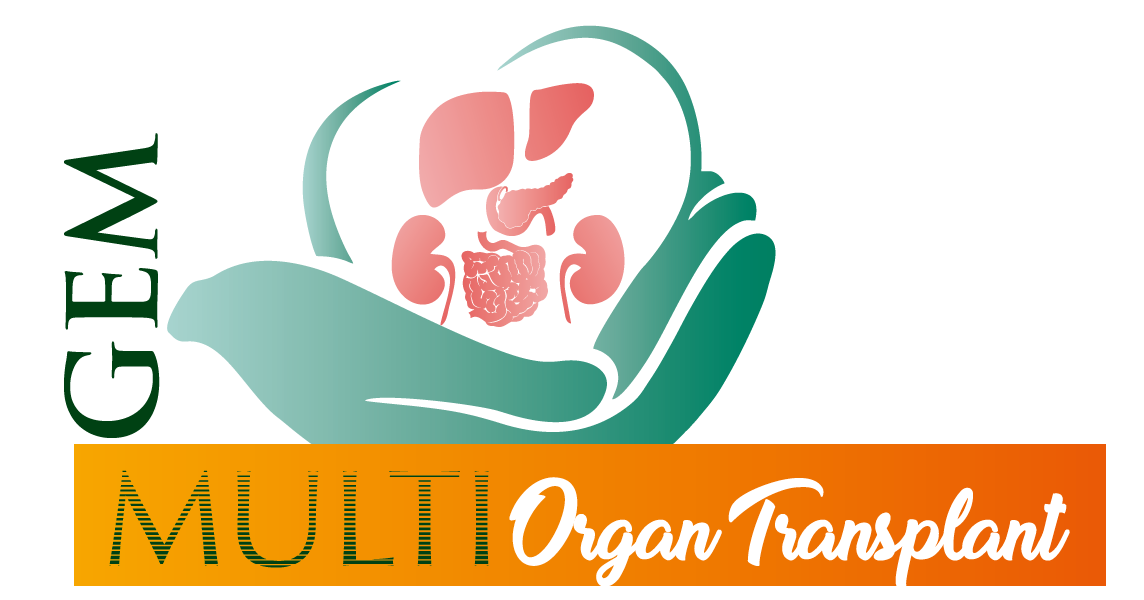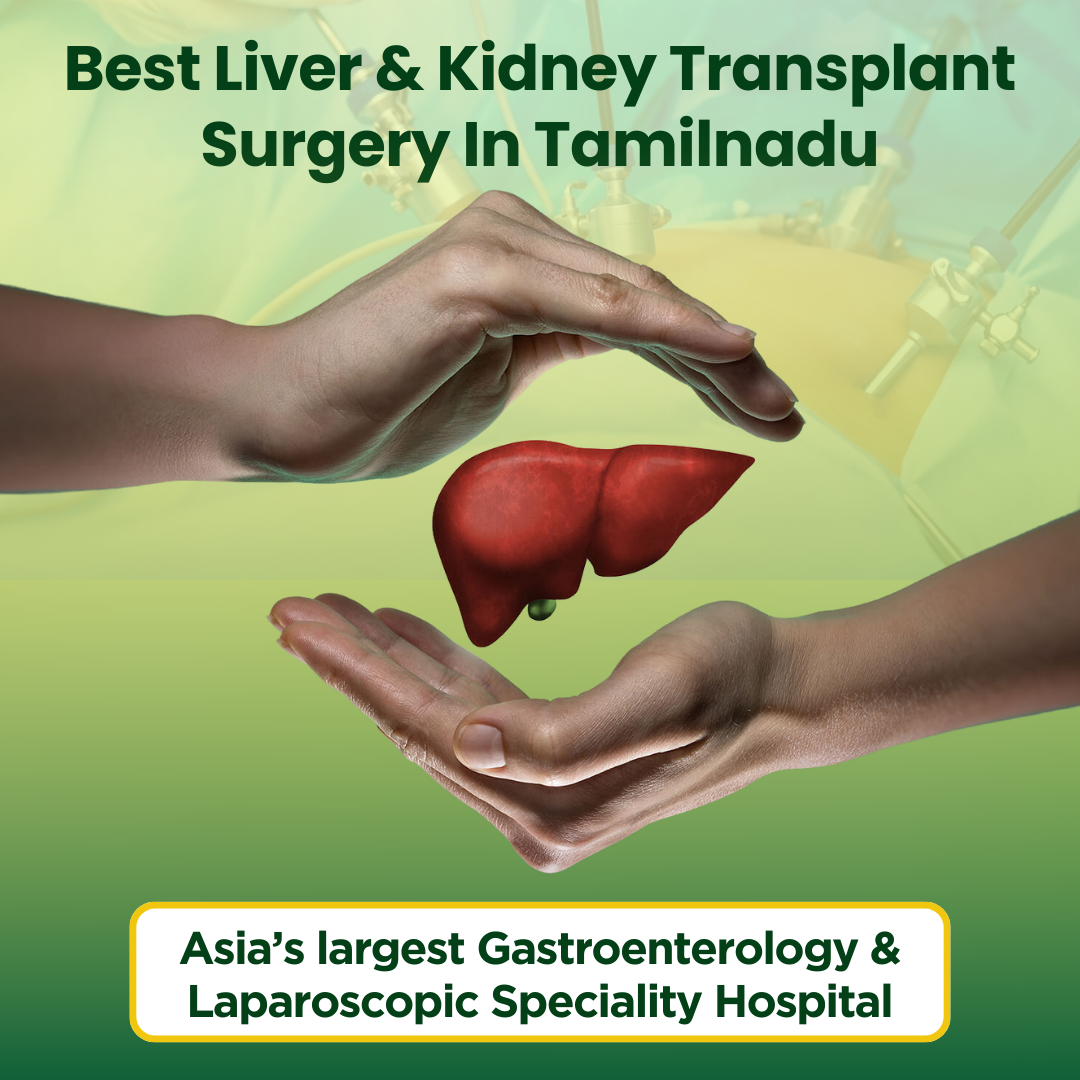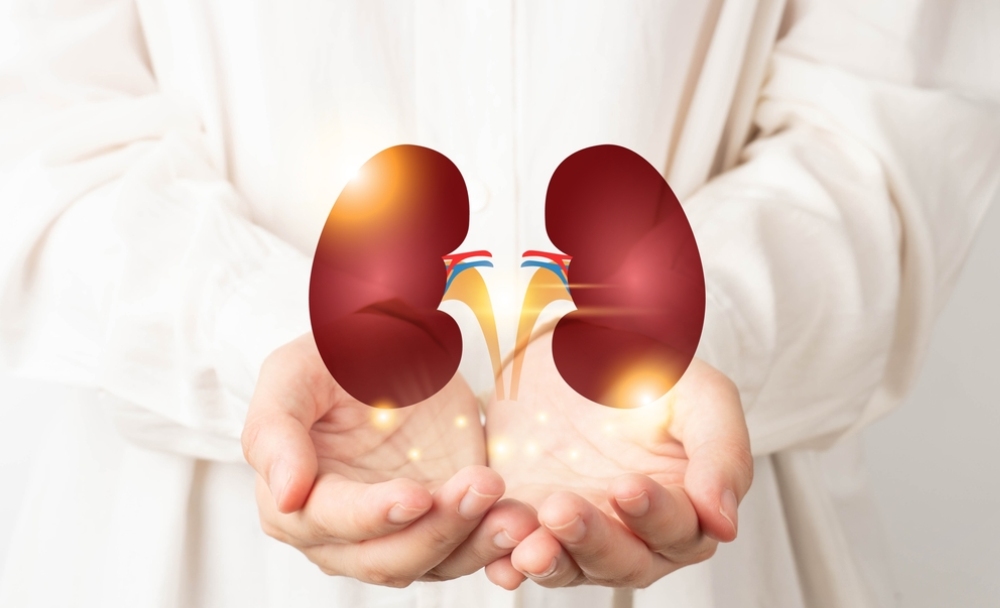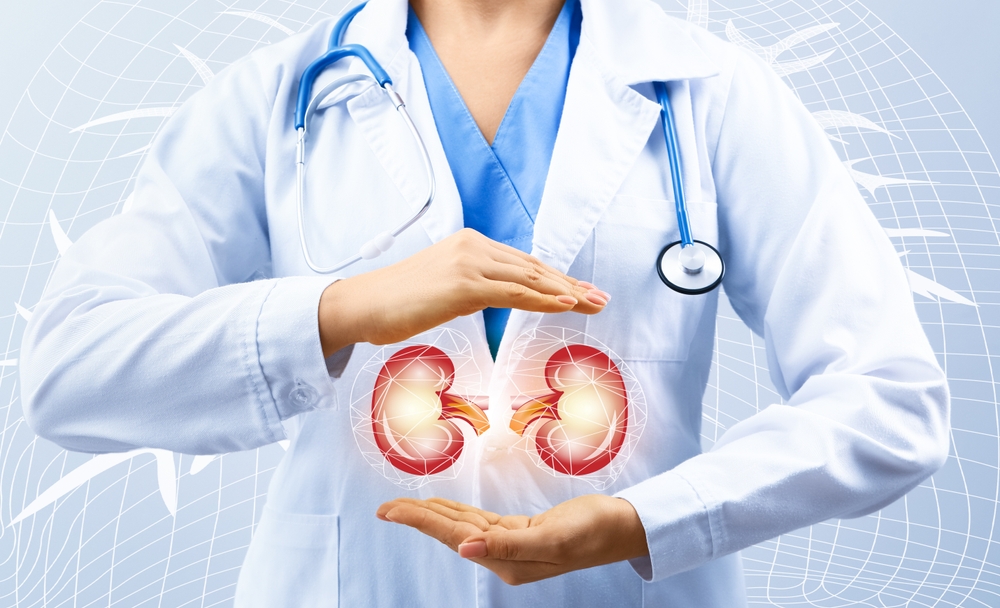Call Now: 7200605493 / 9150092609 / 8925847515
Best Liver & Kidney Transplant Surgery In Tamilnadu
Specialist Care for Complex Liver Diseases, Liver Transplantation, Kidney Diseases and Kidney Transplantation Complex Liver, Kidney & Pancreatic Transplantation.
Asia’s largest Gastroenterology & Laparoscopic Speciality Hospital Group

Comprehensive Patient Care

Advanced Laparoscopic & Robotic Transplant Surgery

Advanced Diagnostics
Comprehensive Multi-Organ Transplant Services
Our Quality System is Here to Help You!
Welcome to our multi-organ transplant facility, where compassionate care, cutting-edge technology come together to save and improve lives.
- Emergency Cases
- Transplant Surgeons
- State-of-the-Art Facility
- Specialized Liver ICU Care

Liver Transplantation

Orthotopic liver transplantation.
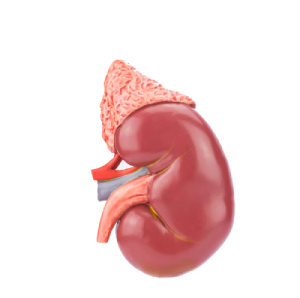
Transplantation of parts of an organ.
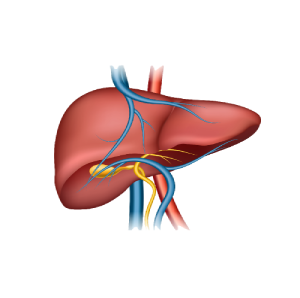
Heterotopic transplantation of a new liver.

An organ transplant from a living relative who agreed to give part of his liver.
Doctors Speech
About Multi-Organ Transplant
What conditions can a Kidney Transplant have?
Kidney transplantation can be a treatment option for various conditions, including but not limited to:

End-stage renal disease (ESRD)

Diabetes-related kidney disease

Polycystic kidney disease

Glomerulonephritis

Lupus nephritis

Chronic Kidney Disease (CKD)
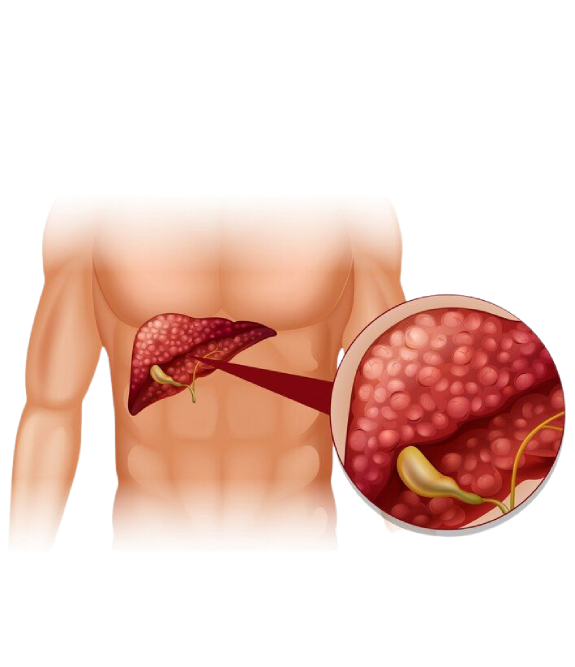
Introduction to Liver Transplant
A liver transplant is a complex surgical procedure that takes place only in a specialized transplant center. surgeon removes a diseased liver and replaces it with a healthy liver, either from a deceased donor or a portion donated from a living donor. Liver failure is a potentially fatal condition; a liver transplant is the final life-saving option. The success rate of a liver transplant is around 95%.
Types
Living Donor Liver Transplant:
A portion of the liver is removed from the donor and place the donated organ in the body. The blood vessels and bile ducts are connected to the new liver. In many cases, the unused transplanted portion of the liver and the left behind bit regenerate rapidly, reaching average volume.
Deceased Donor Transplant:
In case of receiving the living from a deceased donor, it will be scheduled at short notice.The diseased liver is then removed and places the new liver in the body. The blood vessels and bile ducts are then connected to the liver. With the liver intact, the surgeon stitches and closes the incisions. The patient will be closely monitored in a post-operative ICU for the next few days till the liver function recovers and to reduce the risk of rejection.

Introduction to Kidney transplant
The kidneys are essential organs that filter waste from the blood, produce urine, and help manage important body functions. When the kidneys fail due to conditions like diabetes, high blood pressure, or genetic disorders, it can seriously impact health. For some individuals, a kidney transplant offers a chance to restore normal kidney function and improve their quality of life for patients on regular dialysis.
The patient may receive kidney from a live donor (a relative or a close friend), paired kidney donor (registered recipients and donors) and deceased donor (recently died). Before transplant, the donor’s kidney is tested for the tissue type and blood type, as this would help in reducing the chances of rejection of the new kidney. During kidney transplant surgery, the surgeon places the healthy donor kidney into the patient’s body. The damaged or diseased kidneys are seldom removed from the body. The blood vessels and the ureter (tube that carries urine to the bladder) are connected to the new kidney.
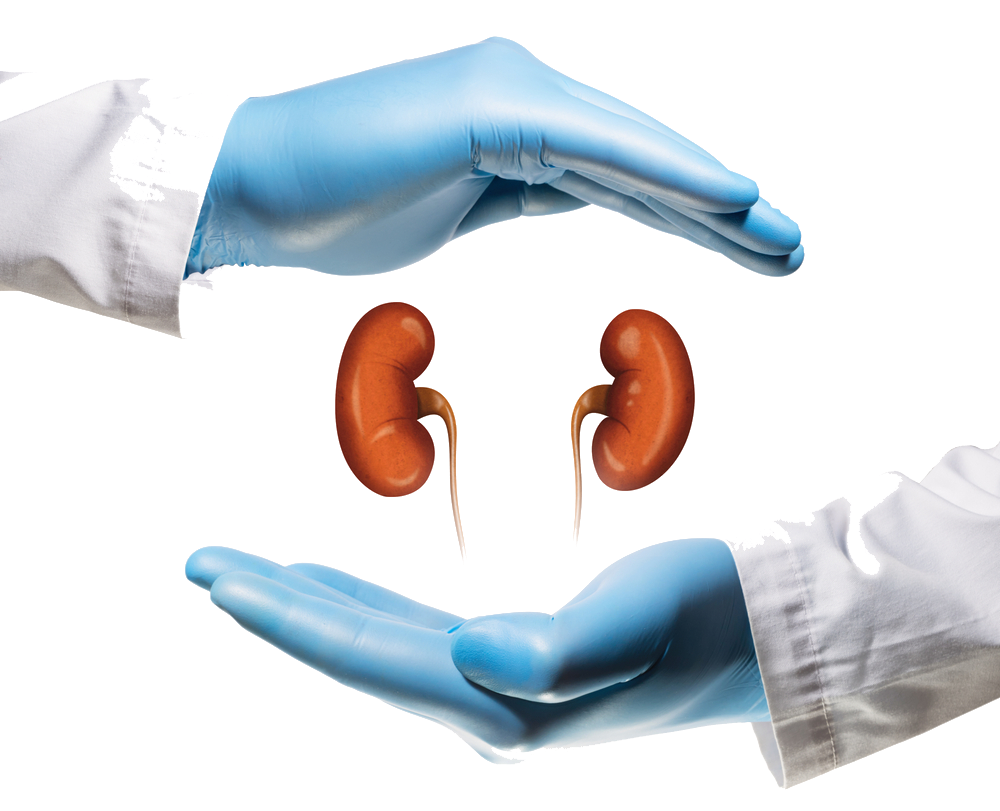

who needs it
People with severe kidney disease or kidney failure, often caused by conditions such as diabetes, high blood pressure, polycystic kidney disease. may need a kidney transplant. The goal of the transplant is to replace the failing kidneys and restore their ability to filter blood and produce urine, which can significantly improve overall health and well-being.
Living Donor Kidney Transplant:
Who is it for? People who need a kidney and have a living donor, usually a family member or friend.
What happens? A healthy kidney is removed from the donor and transplanted into the recipient.
Benefits: The procedure can be scheduled at a time that works for both the donor and recipient, and the kidney often starts working right away.
Introduction to Pancreatic transplant
The pancreas is an important organ in the body that helps control blood sugar by producing insulin, and it also makes enzymes that help with digestion. When the pancreas stops working properly due to conditions like diabetes or pancreatitis, it can seriously affect a person’s health. For some people, a pancreas transplant can be a life-changing solution, helping them regain control over their blood sugar levels.
Who Needs a Pancreas Transplant?
People with type 1 diabetes or severe pancreatitis that hasn’t improved with other treatments may be candidates for a pancreas transplant. The goal is to help the body produce insulin again, which can remove the need for insulin shots and improve overall health.


Impact on Diabetes Management and Quality of Life
A successful pancreas transplant can significantly impact a patient’s life:
1.Improved Blood Sugar Control: Many recipients achieve stable blood glucose levels without the need for insulin injections.
2.Quality of Life: Reduced dietary restrictions and freedom from daily diabetes management tasks can improve overall quality of life.
3.Long-term Health: The transplant can prevent or delay complications associated with diabetes, such as kidney disease, nerve damage, and vision problems.

3500
+Happy Patients

30
+Years of Experience

18
+3D & 4K Operation Theaters

Follow-up care during recovery?
During the recovery period, patients will have frequent follow-up visits with the transplant team to monitor kidney function, adjust medications, and address any concerns or complications that may arise.
